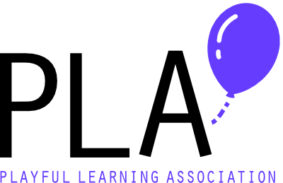Moody Players and Bored Game Dramas!
Corresponding Author: Christina Hancock
All authors: Alka Townend, Karen Hall
Length: 90 minutes
Location: Outdoors
Description:
We aim to inspire you in this session by playfully exploring the results of our current research which aimed to consider the conceptualization, application, and impact of playful pedagogies in Initial Teacher Education (ITE). The results of our questionnaire will provide a broad overview of the diverse characteristics of play and playfulness within ITE and enhance your toolbox for considering the use of playful pedagogies. This overview will be further explored as we bring you the details of three specific playful approaches. First, you will engage in a drama led activity which promotes creativity through developing spontaneity in adults. Next, you will try a playful method used to provoke dialogue for required readings called ‘What’s your mood?’. This approach embraces playfulness and creativity to enable student led choice for the frequently dreaded academic discussion of core readings. Thirdly, you will use your strategy skills to play ‘Bored Games’ which will promote the notion of transferable skills and strategies in games to classroom learning. As we close our session, we will consider each approach (playfully) through lens of diverse learners which will challenge your thinking about ensuring playful approaches are created and delivered through the lens of inclusive practice.
References, web links and other resources:
Bayeck, R. Y. (2020). Examining Board Gameplay and Learning: A Multidisciplinary Review of Recent Research. Simulation & Gaming, 51(4), 411–431. https://doi.org/10.1177/1046878119901286
Kerr, M. M., & Frese, K. M. (2017). Reading to Learn or Learning to Read? Engaging College Students in Course Readings. College Teaching, 65(1), 28–31. https://doi.org/10.1080/87567555.2016.1222577
Toivanen, T., Komulainen, K., & Ruismäki, H. (2011). Drama education and improvisation as a resource of teacher student’s creativity. Procedia, Social and Behavioral Sciences, 12, 60–69. https://doi.org/10.1016/j.sbspro.2011.02.010
